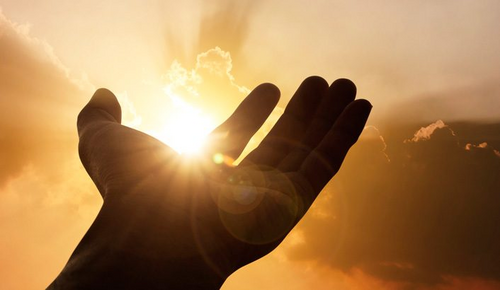
How To Know A Vision Is From God

When someone comes up with a good idea, the temptation or natural byproduct can be glory or honor for the one who came up with it. However, when God gives us a vision, the vision is often something that would be impossible if left simply to our human ability
John 10:10 – The thief cometh not, but for to steal, and to kill, and to destroy: I am come that they might have life, and that they might have it more abundantly.
Luke 4:18-19 – 18 “The Spirit of the Lord is upon Me, Because He has anointed Me To preach the gospel to the poor; He has sent Me to heal the broken-hearted, To proclaim liberty to the captives And recovery of sight to the blind, To set at liberty those who are oppressed; 19 To proclaim the acceptable year of the Lord.”
Not all visions are from God. The problem with getting your vision from other sources other than God is that while it may have an earthly appeal, it would lack divine/eternal dividend. In order to avoid gaining the whole world and losing your soul, the following are the acid test to show that a vision is from God:-
You will need God to know and fulfil it – if God is the source of your vision, then you will need God to fulfil it. Jesus, continually pointed to God has His source. The same thing with Paul, he pointed the Christ has both his source of vision and strength(Philippians 4:13). If you are the source of your vision, then you are the Lord of your life and then you are your own saviour and that means your vision is limited to your ability and God is ruled out. It is source that determines size. It is source that determines resource. So be wise to receive the vision for your life from God. From above scripture in Luke 4 you will see that Jesus made it clear that it is the Spirit of the Lord that has given Him the assignment and the vision was not self-made.
It should benefit humanity – The bible says, for God so love the world,… God’s vision benefits all humanity. God does not discriminate against anybody. Jesus died for all and not for some. If you are the only one that your vision benefits then it is not from God. Your vision should benefit all that believe and receive it. God loves people more than anything, so if your vision does not improve God’s most important treasure then your vision is worth very little. My question is if your vision gets fulfilled today apart from your family and you, who and who would also benefit from it. The true worth of a vision is in the magnitude of its beneficiaries. The vision of Jesus was centred on meeting the need of humanity so your vision should take after Jesus Christ.
It will give you fulfilment and peace of mind – Romans 14:17 – for the kingdom of God is not eating and drinking, but righteousness and peace and joy in the Holy Spirit.
The peace of God that passes all understanding, will keep your mind and soul when your vision is from God. When God calls He also keeps. When He gives you vision, he makes provision. He told the disciples, I am with you always even to the end of the age. Jesus asked the disciples a question after they returned from the ministry work he sent them, He asked ‘did you lack anything when i sent you out ’ and they replied ‘’we lacked nothing, Lord ’. When then vision is from God, you will enjoy peace and fulfilment, in spite of any opposition.
Please share with us your perspective of Markethive. Do you believe Markethive is a vision? A project so huge only God could make it real?
